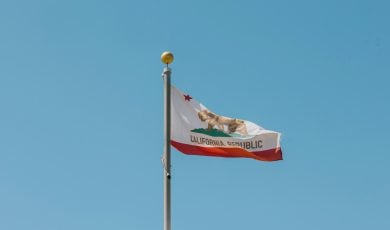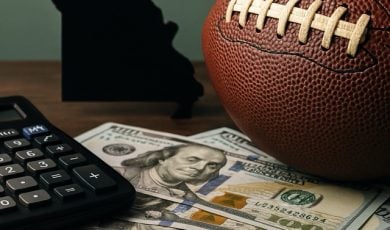After a tumultuous few months, Minnesota sports betting legislative efforts might ride the perfect storm to passage in the final week. Or they could end up in another shipwreck.
One thing is certain. It won’t be the anti-climactic ending Minnesota sports betting legislation experienced the last two years.
Political pressures of an election year, charitable gaming needs and pending lawsuits among gaming entities will at least add intrigue. They could also finally propel Minnesota to get sports wagering across the finish line.
Multiple sources tell PlayUSA that the House plans to pass Minnesota sports betting legislation Wednesday and hopes to include a deal between Indian tribes and horse racing on the House floor.
An agreement to bring the horse racing industry on board while maintaining tribal support would add Republican votes and ensure passage in the Senate. However, no deal was in place entering the week. The Minnesota legislative session concludes on May 20.
A new vehicle for Minnesota sports betting
The House Ways and Means Committee prepped legislation for passage by adding sports betting language to HF5274, the historic horse racing (HHR) prohibition bill.
By changing vehicles from HF2000 to HF5274, sponsors Rep. Zack Stephenson and Sen. Matt Klein can avoid a Senate roadblock ahead.
Klein’s SF1949 had stalled in the Senate Finance Committee, where Chair John Marty is not a fan of sports betting and has made some big demands, including prohibiting in-game wagering.
As the House companion to SF1949, HF2000 also would have needed to go through Senate Finance after House passage. But HF5274 can avoid the committee. Klein took over as chief author Monday of SF5354, the HHR prohibition companion bill.
As amended, the House bill no longer includes a prohibition of electronic table games currently being offered at Minnesota racetracks.
Stephenson made another key change for sportsbook operators, making the licensing fee annual rather than every three years. The amount, $250,000 over three years, stays the same with one-third paid each year.
Charitable gaming tax break adds political pressure
Minnesota House Democrats are pushing hard to get the sports betting legislation to the finish line by the end of the session, not so much because of sports betting but because of the tax cuts for charities in the legislation.
It’s an election year for the Minnesota House. The Democratic Farmer Labor Party (DFL) has 70 seats in the chamber to 64 for Republicans.
Running Aces CEO Taro Ito told PlayUSA that legislators are feeling pressure to pass the sports betting legislation because it includes tax cuts for charities.
Last year, the DFL added restrictions on electronic pull tabs for charitable gaming into an omnibus tax bill at the end of the session.
Stephenson was one of the legislators who pushed the hardest for the charitable gaming changes. He struck a deal this session to make it up to charities with significant tax cuts. However, those tax cuts depend on the revenue online sports betting generates.
The e-pull tab changes go into effect Jan. 1. If the tax cuts aren’t in place at the same time, charitable representatives and their benefactors figure to remember in November. And that could put DFL control of the House at risk.
“There’s an urgency to make up for gutting e-pull tabs for charities,” Ito said. “Zack Stephenson is scrambling to get sports betting done because he’s trying to get re-elected. He’s in a tough spot because he alienated himself from veterans, people with interest in youth sports, and others. I really think he’s using leverage trying to get that sports betting bill done because, for him, it’s his political career on the line here.”
House Speaker Melissa Hortman last week gave the sports betting bill 60-40 odds. She said an HHR ban would have to be part of any bill.
Agreement between tribes and tracks is key
As always, Minnesota sports betting legislation comes down to whether the 11 tribes and two racetracks can reach a deal.
It comes down to revenue share for tracks not to contest tribes getting exclusivity over online sports betting.
The House bill offers the tracks $625,000 annually and requires the money go to horse racing purses.
Ito said he doesn’t believe there has been any progress in discussions with tribes.
“There’s been no movement on how can use the dollars. Recently they’re saying no money to entities, all money to purses. Obviously, they don’t want us to use it to directly compete against them in the casino area. But if we can’t use it in a way to help our bottom line, it doesn’t make any sense to us. So we’ve gone backward on that language. It doesn’t seem like there’s any sort of mutual desire to negotiate in good faith. It’s like again, take it or leave it.”
Canterbury Park, a thoroughbred and quarter horse racetrack, and Minnesota horseman associations put a higher value into purse increases than Running Aces, which offers harness racing.
Perhaps legislative urgency can help facilitate deal
Tribes haven’t been willing to budge in negotiations with tracks previously. But perhaps pressure from legislators looking to pass the charitable gaming tax and the prospect of legal challenges could facilitate a compromise.
Last month, the Minnesota Racing Commission approved HHR at Minnesota racetracks. The commission set HHR to begin May 21, but the Shakopee Mdewakanton Sioux Community filed a lawsuit challenging the commission’s decision.
Running Aces then filed a lawsuit against three Minnesota tribes alleging they offer card games not authorized under state law.
Ito said the track would be willing to accept an HHR prohibition and give up the lawsuit against tribes if provided difference-making revenue share from sports betting.
“If you don’t have any leverage, you’ve got to create leverage. I’ve said in my statements all along, all we’re trying to do is get a seat at table and negotiate in good faith. There continues to be reluctancy on tribes to do that.”
Reps. Pat Garofalo and Brian Pfarr, both Republicans, spoke in favor of the tracks at the Ways and Means Committee on Friday.
“I think that there are forms of historic horse racing that are acceptable that could be part of the solution…,” Garofalo said. “Certainly the ones that would classify on the higher end as slot machines, those concerns are justified. For other ones, it’s a parimutuel pool, not a random number generator. It is historic horse racing. It is a parimutuel wager. I think that’s something that should be on the table as one of the things we can do to help bridge the gap and help achieve a bipartisan, bicameral agreement.”
Will partisanship derail Minnesota sports betting?
Once Minnesota sports betting legislation passes the House, it will cross over into a chamber that has seen partisan bickering at an all-time high. Last week, a Senate ethics panel opted not to take action against Sen. Nicole Mitchell regarding a felony burglary arrest in a domestic dispute during the legislative session.
The DFL only has a one-seat margin in the Senate, so her removal would change control of the chamber.
Garofalo said that sports betting will be among a few key issues negotiated by the DFL and Republicans in the final week.
“I would consider this piece of legislation absolutely must-pass. But as we’re going forward it’s just really important for members to understand the conversations that the leadership of the four caucuses are going to be having the next week of session and what role the minority party will be having, what level of collaboration and access we’re given, and input on legislation on uber, bonding, sports gambling and other items that require it. So those conversations are going to be play a really big role on what we are able to do or not do on sports gambling.”
Stephenson said he will work with Republicans to get the sports betting bill done.
“I wholeheartedly agree with Rep. Garofalo that this is going to have to be a collaboration. That’s the approach that I’ve had for the bill so far and will continue to have.”








